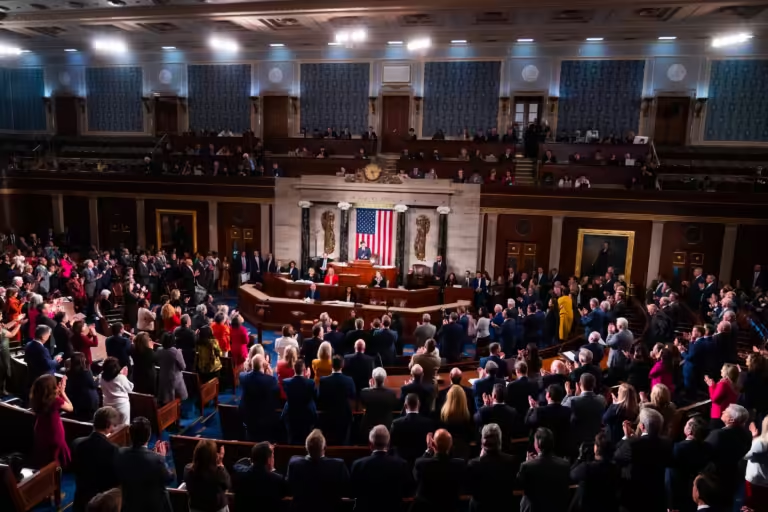In the fast-evolving world of cryptocurrency, understanding the political landscape is just as crucial as grasping the tech itself. Recently, Congressman John Curtis highlighted a significant moment in crypto politics during the Permissionless III conference. With bipartisan support from 71 Democrats and Republicans, there’s a push to repeal the SEC’s SAB-121 guidelines, which have made it tough for banks to handle cryptocurrencies. But why does this matter? Let’s break it down.
Key Points to Remember
- Bipartisan Support:
- Fragility: Curtis describes the current bipartisan support as “very fragile.” This means that while Democrats and Republicans may be working together now, this unity could easily fall apart if political divisions deepen. A divided Congress could slow down or completely halt progress in crypto regulations.
- Importance of Collaboration: It’s crucial for industry leaders to engage with lawmakers from both parties. If crypto becomes a partisan issue, it will face significant hurdles.
- The Role of Education:
- Educate Lawmakers: Curtis urges professionals in the crypto space to help educate lawmakers about how cryptocurrencies work. Many lawmakers struggle to understand the complexity of digital assets, leading to fear and hesitation around regulation.
- Technical Complexity: By simplifying these technical details, the fear can be alleviated, making it easier for lawmakers to create informed policies that support innovation instead of stifling it.
- Concerns Over Regulation:
- Senator Mike Lee’s Warnings: Lee shares his thoughts on potential threats to the crypto industry:
- Central Bank Digital Currency (CBDC): This is a digital currency issued by the Federal Reserve that could disrupt the current cryptocurrency market.
- Overregulation: Too much regulation from the federal government could choke the life out of crypto innovation.
- State Conflicts: If every state develops its own rules for cryptocurrencies, it could lead to chaos—a situation Lee calls “Death by 50 cuts.”
- Senator Mike Lee’s Warnings: Lee shares his thoughts on potential threats to the crypto industry:
- Understanding Cryptocurrency:
- New Asset Class: Lee emphasizes that cryptocurrencies are unique and don’t fit neatly into existing categories like securities or commodities. Recognizing them as a new asset class is essential for creating effective regulations.
- Taxation Issues: Lee believes that taxing capital gains on cryptocurrency transfers could hinder its growth, suggesting that digital currencies should be treated differently than traditional assets.
Why This Matters to You
Understanding these developments is crucial for several reasons:
- Future of Finance: Cryptocurrencies are changing the way we think about money and financial transactions. Being knowledgeable in this field prepares you for the future of finance, where digital assets may play a central role.
- Career Opportunities: As the crypto industry grows, so do job opportunities. Knowledge of cryptocurrency and regulation can position you as a valuable asset in the workforce.
- Empowerment: By grasping these complex issues, you empower yourself to participate in discussions that shape the future of digital assets, ensuring that innovation isn’t stifled by outdated regulations.
Conclusion
The ongoing conversation around cryptocurrency regulation highlights a pivotal moment in the relationship between technology and politics. As Congressman Curtis and Senator Lee stress, the future of crypto is at stake, and understanding these dynamics is vital for anyone interested in this field. Keep an eye on developments, educate yourself, and engage in discussions—your knowledge can contribute to a more informed and innovative future in the world of cryptocurrency.



